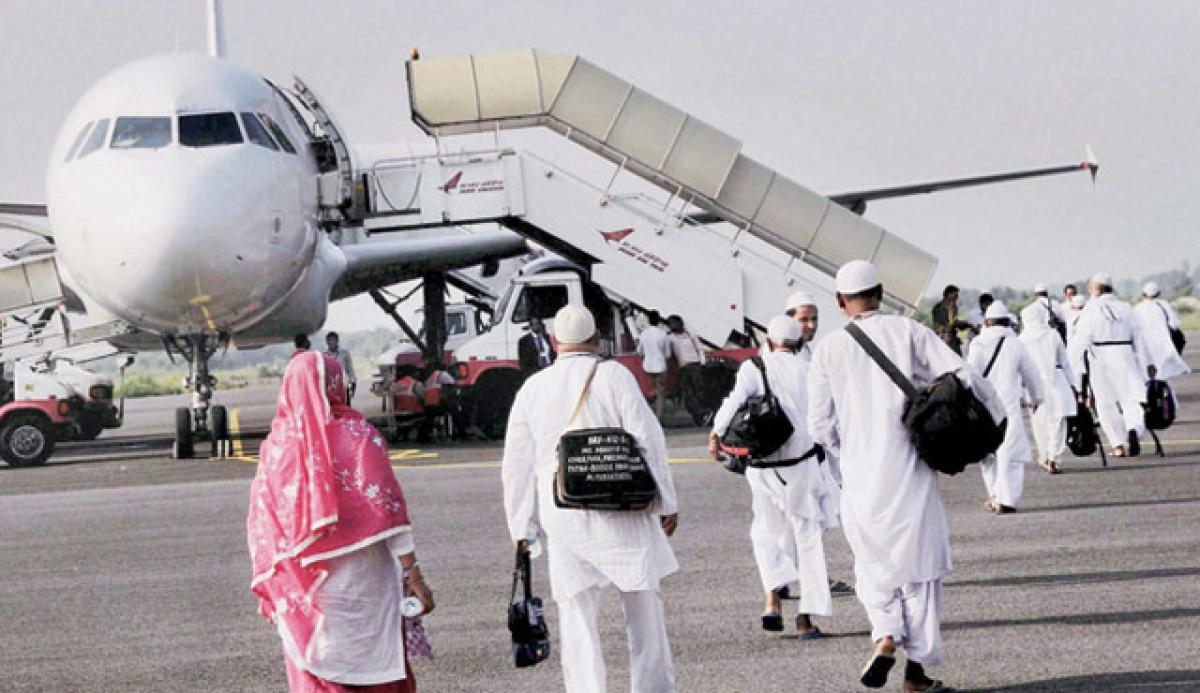Just In

Infection, a major threat to Hajis. The upcoming Haj pilgrimage to Mecca is bound to be one of the largest yearly religious mass gatherings worldwide, with over two million people set to gather from more than 184 countries.
The upcoming Haj pilgrimage to Mecca is bound to be one of the largest yearly religious mass gatherings worldwide, with over two million people set to gather from more than 184 countries. Among them, about 1.36 lakh Indians will be visiting the Haj this year.
.jpg)
The only worry during such huge gatherings is of an epidemic and the transmission of communicable diseases such as bronchitis, pneumonia and influenza. Usually respiratory illness is considered the most common reason for hospitalisation.
According to Dr Ashfaq Hasan, pulmonologist at Owaisi Hospital & Research Centre, pneumococcal respiratory infection has become a major threat at Haj, emerging as the leading cause for hospital admission (39 per cent) and the second leading cause of ICU admissions during the Haj.
Dr Ashfaq says, “Physicians practicing in this city have regularly observed a significant upsurge in respiratory tract infections after the Haj season. Several of these cases have evolved into pneumonia and translated into hospitalisation and even ICU admission among returning Haj pilgrims.”
Understanding the growing emergence of pneumococcal infections, the Center for Disease Control and Prevention (CDC) and the Saudi Ministry of Health have advised pneumococcal vaccination for Hajis especially those over the age of 65 and adults suffering from chronic diseases of the liver, heart, kidney, lungs, sickle cell anemia and individuals who have undergone a splenectomy.
Several countries such as France, USA, Kuwait, Qatar, Bahrain, UAE, Singapore, Malaysia, Egypt and Indonesia strongly recommend the vaccine. In India, vaccines for meningitis, yellow fever and polio has been made mandatory for Haj pilgrims but a vaccination programme for common infections like pneumococcus does not yet exist for want of hard data on the rate of such infections in returning pilgrims.
“Undertaking a mass vaccination programme in a country of a billion-plus people is no small task. To optimise the channeling of resources, key areas of vulnerability must be identified. It is imperative that registries be established to gather and interpret information that is relevant to this country.
Given the increasing threat of pneumonia infections among Hajis in the recent years, the gathering of pneumococcal surveillance data is the need of the hour. Meanwhile, it is important for the Indian government to consider the inclusion of a pneumococcal vaccine in the mandatory list of vaccines,” added the doctor.

© 2024 Hyderabad Media House Limited/The Hans India. All rights reserved. Powered by hocalwire.com







